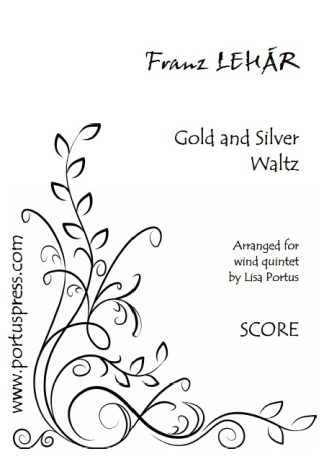Description
Franz Lehár (1870 –1948) was an Austro-Hungarian composer known mainly for his operettas, particularly The Merry Widow. He also composed other light music, including marches and waltzes, in the vein of Strauss. Like Strauss, Lehár had an astonishing gift for melody, producing extremely accessible, highly memorable and popular music which still delights today’s audiences.
In 1902 he was commissioned to write a waltz for Princess Pauline von Metternich’s Gold and Silver Ball. Princess Pauline was a famous Austrian socialite, renowned for hosting extravagant balls and galas, but she was also an important supporter and promoter of the work of up-and-coming composers including Wagner, Liszt and Smetana.
On the evening of the ball, the theatre was bathed in gold and silver light and the ceiling swathed in silvery muslin bedecked with gold stars. Lehár’s eponymous waltz suited the opulence and theme of the evening perfectly, although the guests evidently talked over the entire performance as they never heard of the composer before. Happily it wasn’t long before the waltz was taken up by an English publisher and quickly became a staple of every light orchestra’s repertoire.



